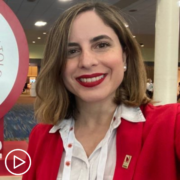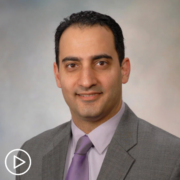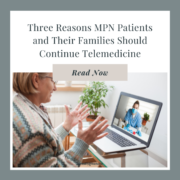Dr. Idoroenyi Amanam: Why Is It Important for You to Empower MPN Patients?
Dr. Idoroenyi Amanam: Why Is It Important for You to Empower MPN Patients? from Patient Empowerment Network on Vimeo.
How can myeloproliferative neoplasm (MPN) care providers empower their patients? Hematologist-oncologist Dr. Idoroenyi Amanam from City of Hope shares his perspective of his experience with a family member going through cancer. Dr. Amanam explains how that experience helped mold his approach to informing and empowering patients in their cancer journeys.
See More from Empowering Providers to Empower Patients (EPEP)
Related Resources:
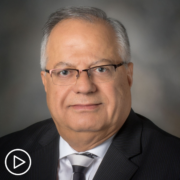
|

|
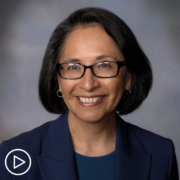
Dr. Ana Maria Lopez Why Is It Important for You to Empower Patients |
Transcript:
Dr. Indoroenyi Amanam:
I know from personal experience, I’ve had a family member who had cancer and had to struggle with therapy and some of the complications associated with therapy. And I felt that her doctor was really good with giving a…giving us an understanding of what was up next for us, giving us an understanding of what the disease meant for her, and really just helped us wrap our heads around what was about to happen. And I think that’s tough when you get a diagnosis and things have to happen very fast. I think we…you’re diagnosed by possibly an ER doctor or a general practitioner. Then you’re sent as a referral to an oncologist who has 30 minutes to talk to you about your diagnosis and ready. Then they scheduled possibly for you to get a port and/or you have to get imaging, or you have to go and get another biopsy, or another procedure.
And a lot of the time that you’re spending at the hospital is really by going to these different appointments, but actually not really talking to anyone about what this really means. And so from my own personal experience of going through it with a family member, I think it’s really important to try to help patients understand what’s really going to happen, what this means for them long term, what the treatments…what the complications are associated with that.
And I know that most of our…most of my colleagues, they do that. And I know that we all want to ensure that our patients have great outcomes, but I do think that having that personal experience does give me some type of connection to patients in possibly in a different way. And so I just want to empower them with understanding that this is something that wasn’t expected. There are a lot of things that have to happen. Here’s what we need to do, and I’m there for you, and I’m there to support you in any way possible that I can to help you get through this.



